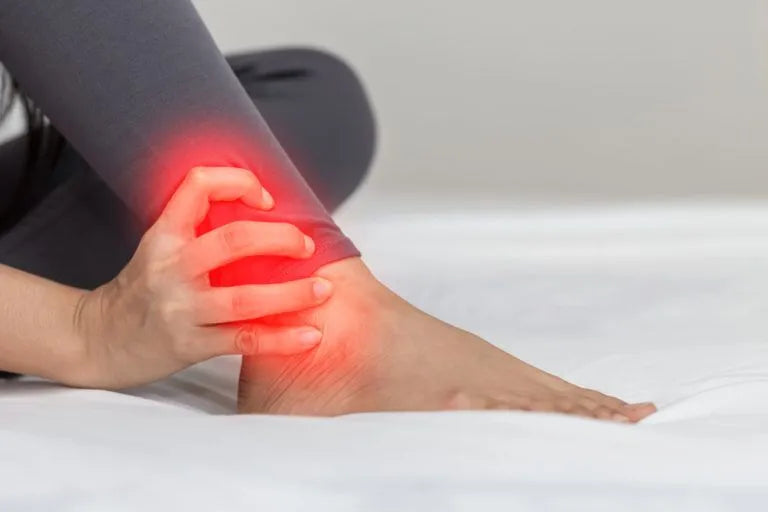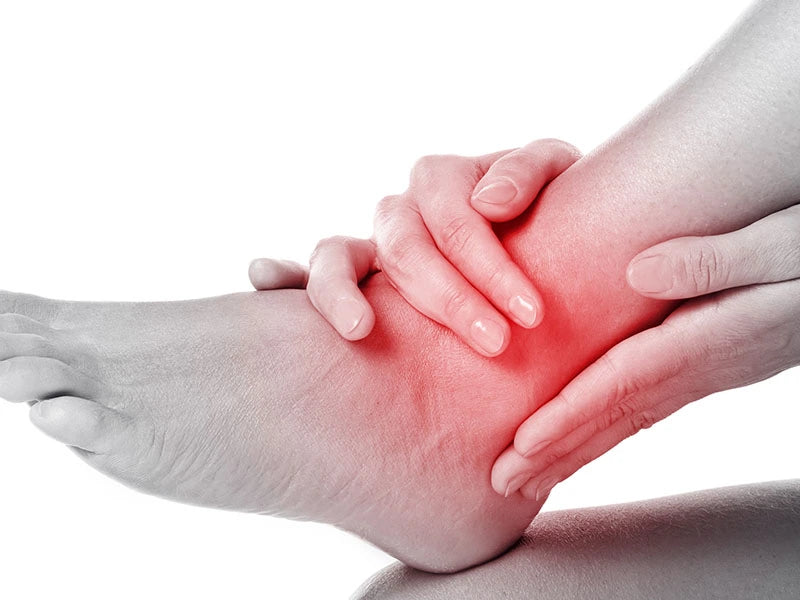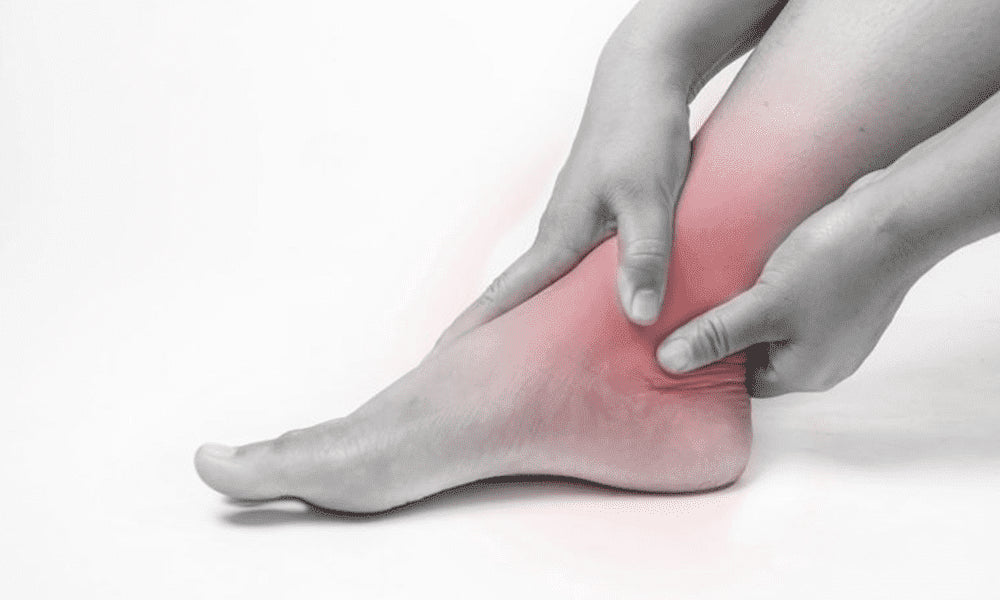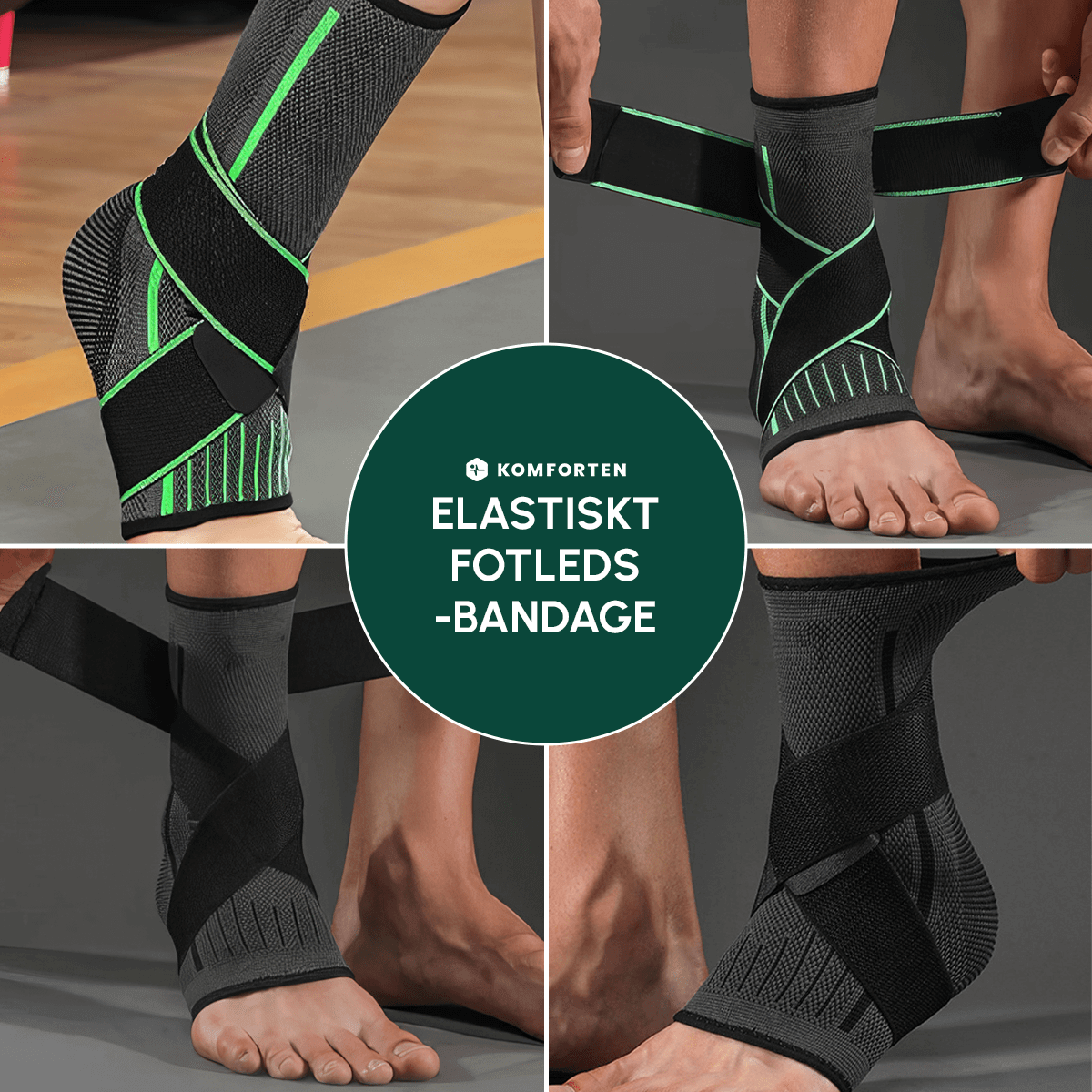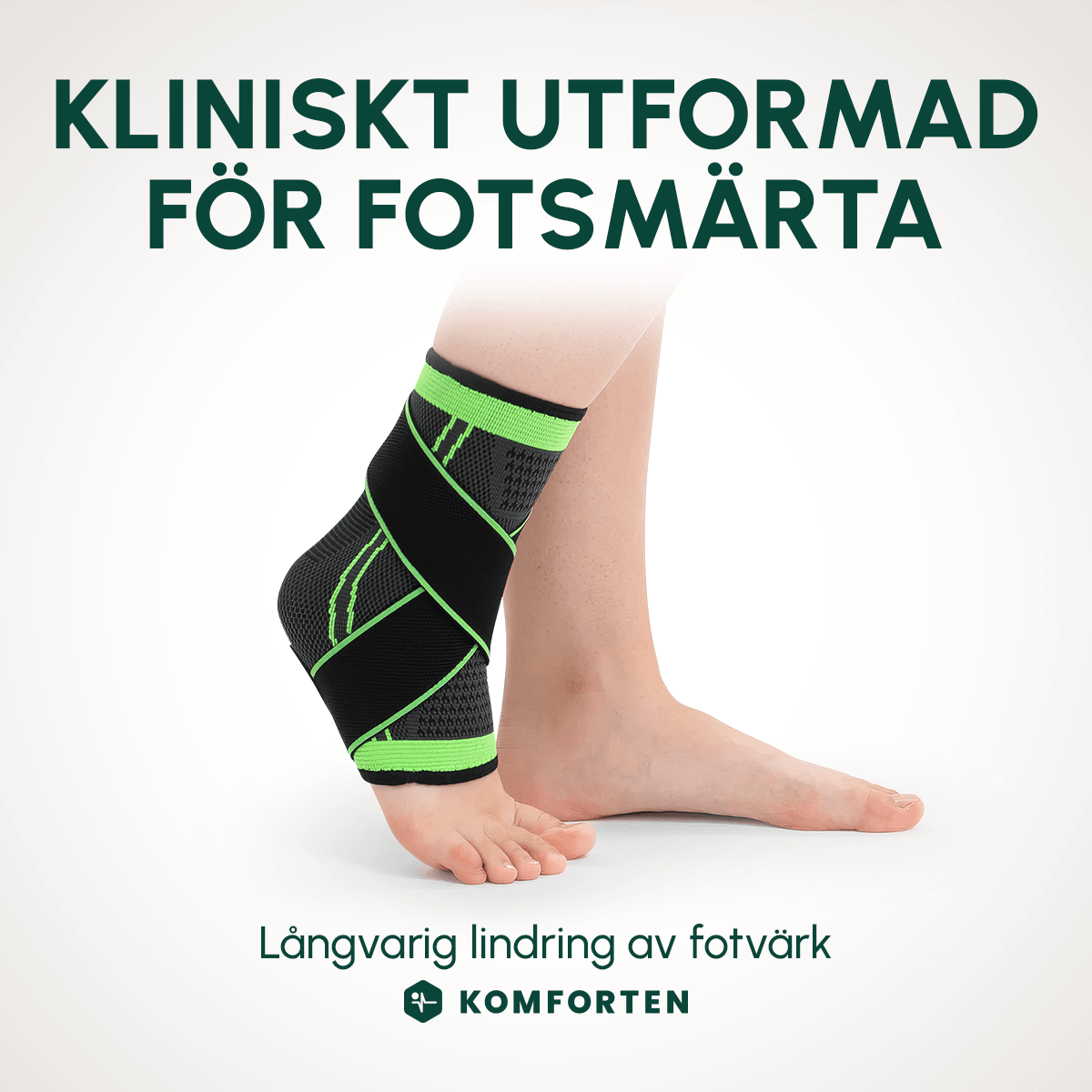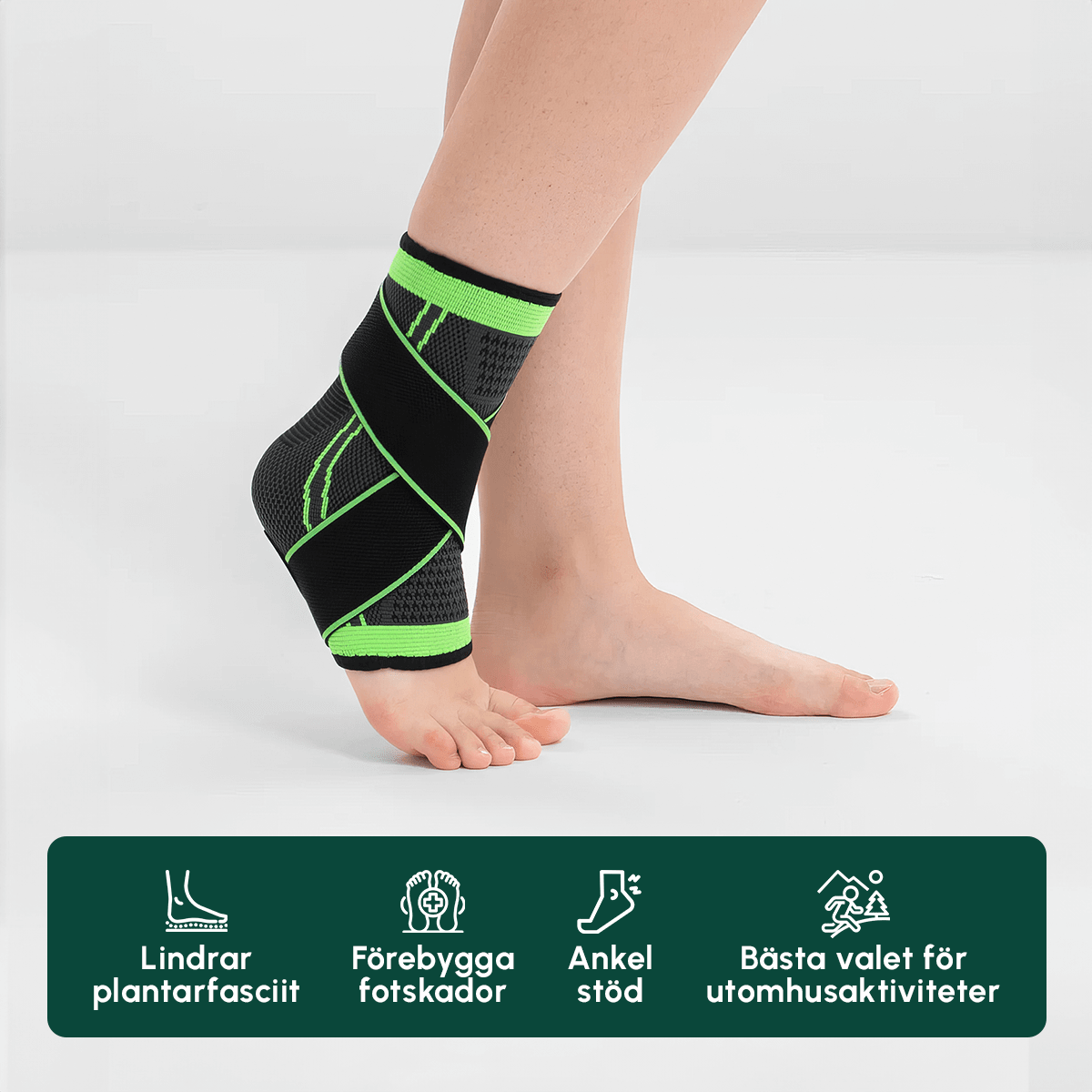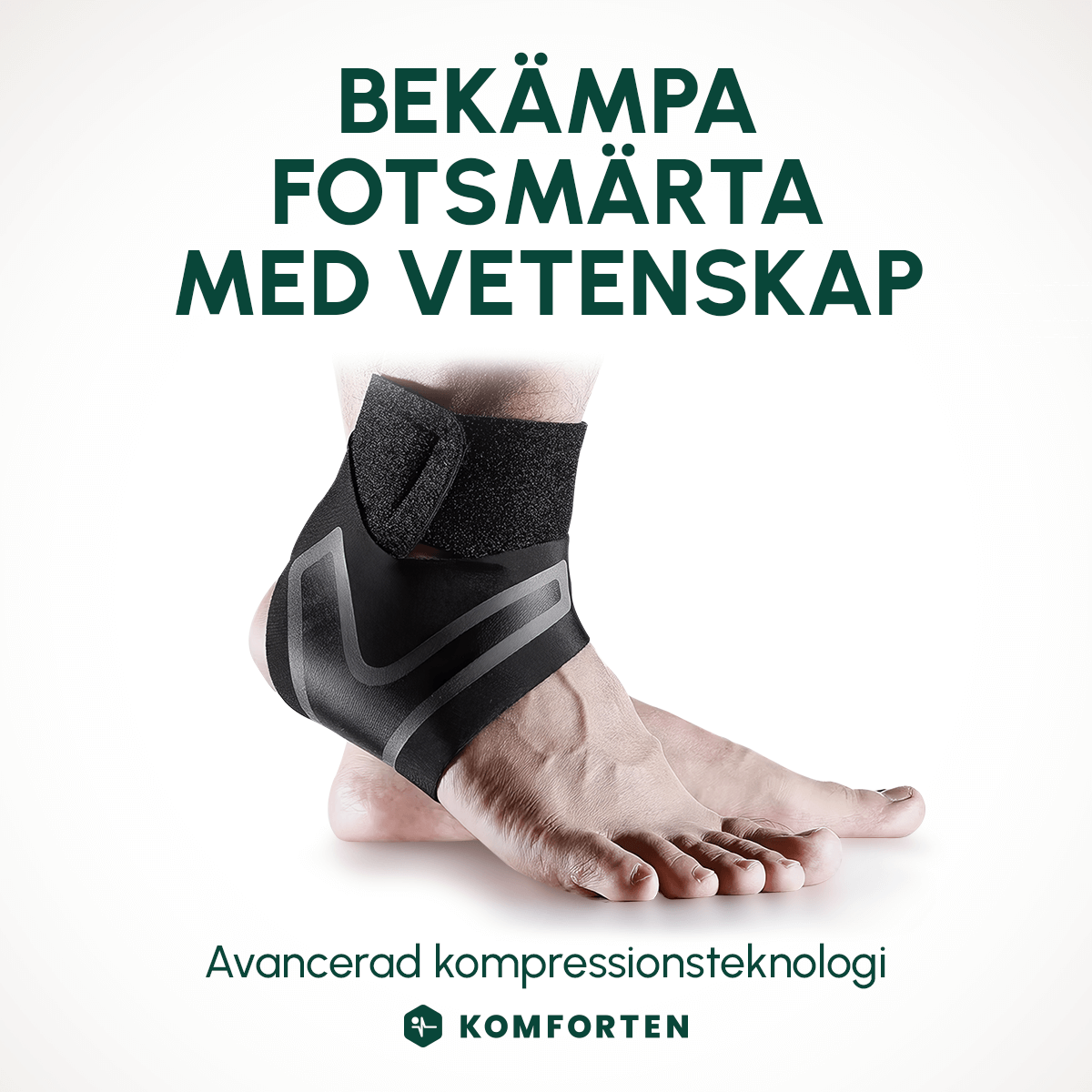Ankle Pain: Causes, Symptoms, and Effective Treatments
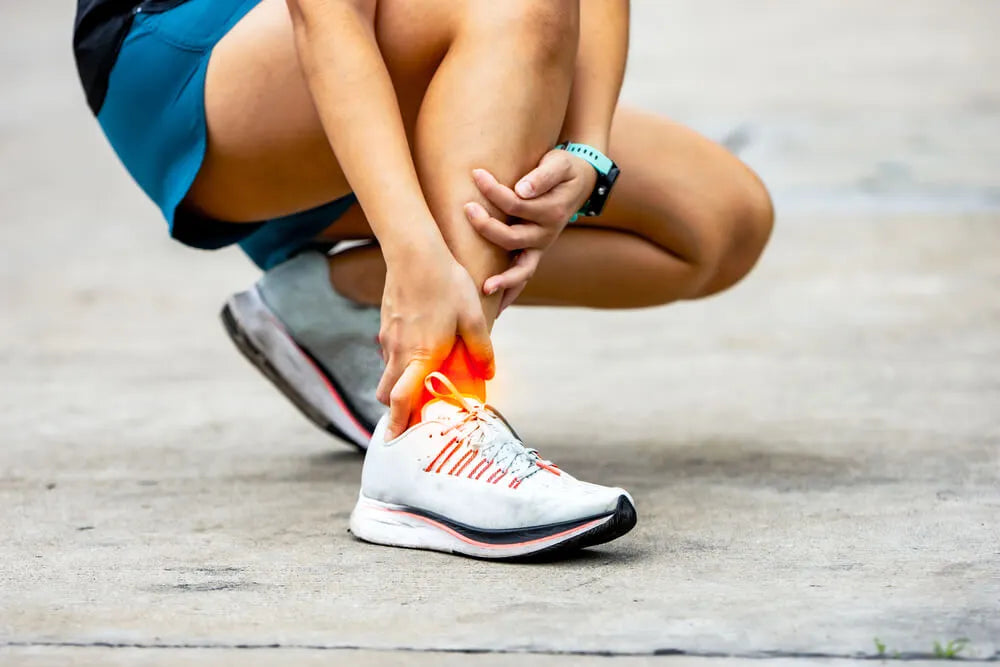
Ankle pain can really put a damper on your everyday life and significantly affect your mobility. Whether you experience ankle pain for no reason, sudden ankle pain, or ankle pain when running, it's important to understand the causes and find the right treatment.
What is ankle pain?
Ankle pain is discomfort or pain in the area around the ankle, which can be located on the inside, outside, front or back. It can be constant, come on with movement or occur at rest. The pain can be due to acute injuries, chronic conditions or strain-related problems. Identifying the root cause is crucial for effective treatment.
Common symptoms of ankle pain
Symptoms vary depending on the cause, but often include:
- Swelling: Localized or diffuse, often accompanied by redness and warmth.
- Pain during exertion: For example, when standing, walking or running.
- Stiffness: Especially after rest or in the morning.
- Instability: The ankle may bend unexpectedly.
- Crackling noises: Often a sign of cartilage damage or inflammation.
Types of ankle pain
Ankle pain can manifest itself in different ways, depending on the cause and severity. Understanding the different types of pain can help you identify the problem and find the right treatment. Here is an overview of the most common types of ankle pain.
Types of ankle pain
Ankle pain can manifest itself in different ways, depending on the cause and severity. Understanding the different types of pain can help you identify the problem and find the right treatment. Here is an overview of the most common types of ankle pain.
Discover products- Sudden pain
- Throbbing pain
- Pulsating pain
- Stinging/burning sensation
- Stiffness with pain
- Intense pain after injury
- Sharp pain with movement
- Throbbing pain
- Constant or intermittent
- Stiffness combined with pain
- Sprain, fracture
- Nerve compression, inflammation
- Overload, inflammation
- Nerve damage, infection
- Arthritis, inactivity
- Loading
- Specific movements
- Rest
- Upon contact
- Morning, after rest
- Exterior/Interior
- Inside
- Depth in the joint
- Varying
- Deep or general
Ankle pain for no reason
Many people experience ankle pain for no reason, but the pain often has an underlying cause that can be difficult to identify. Common causes include:
- Overload from daily activities
- Inflammatory conditions such as arthritis
- Poor posture or walking pattern
- Previous injuries that have not healed completely
Ankle pain when running and jogging
Ankle pain while running is very common among runners and can be caused by:
- Overtraining and too rapid training increase
- Wrong running technique or incorrect shoes
- Ankle pain when running - often a sign of overuse
- Ankle pain when walking - can develop from running injuries
Pain in the ankle on the outside and inside
Pain on the outside of the ankle is often caused by:
- Ligament injuries on the outside of the foot
- Peroneal injuries
- Lateral ankle sprains
Pain on the inside of the ankle may be due to:
- Tibialis nerve injuries
- Medial ligament injuries
- Inflammation of the supporting structures of the arch of the foot
Preventing ankle pain is key to keeping your feet and ankles healthy and strong. Here are some effective tactics:
- Wear supportive shoes: Choose shoes with good support and cushioning. Avoid high heels and flat sandals that lack support.
- Warm up properly: Before physical activity, warm up your muscles and joints with light jogging, stretching, and dynamic movements.
- Vary your activities: Avoid doing the same type of exercise every day. Combine running with cycling, swimming or strength training.
- Perform strength and balance exercises: Strengthen your ankles with exercises like toe raises, one-foot balance, and using balance boards.
- Maintain a healthy weight: A balanced diet and regular exercise reduce the strain on your ankles.
- Use orthotics when necessary: If you have had previous injuries or feel instability, orthotics or ankle supports may be helpful.
There are several different methods for treating ankle pain, and the best treatment depends on the cause and severity of the pain. Here is an overview of the most common treatment methods.
Treatment methods for injuries and pain
There are several different treatment methods depending on the type and severity of the injury. Here we review the most common options, their effectiveness, cost, risks, and when they are used.
1. Rest and relief
Resting the injured area is often the first step in treating minor injuries and overexertion. The effectiveness is high in these cases and the cost is low.
Advantages: completely without side effects.
Disadvantage: recovery time can be long and muscle weakness can occur.
2. Ice and compression
Ice and pressure are often used for acute injuries and swelling. The method reduces swelling quickly and is low cost.
Advantages: short recovery time.
Disadvantage: skin irritation may occur if used for too long.
3. Painkillers
Painkillers provide quick relief from acute pain and inflammation.
Advantages: short recovery time and effective pain relief.
Disadvantage: can cause stomach upset and be addictive with long-term use. Cost ranges from low to medium.
4. Physiotherapy
Physiotherapy is very effective for long-term pain and rehabilitation. The method requires time, commitment and is sometimes painful at first.
Benefits: provides long-term results and strengthens the body.
Disadvantage: the cost is medium to high and recovery can take time.
5. Surgery
In severe cases, or when conservative treatment does not work, surgery may be necessary.
Advantages: very high efficiency for severe injuries.
Disadvantage: risk of complications and infections, long rehabilitation. Cost is high.
Comfort ankle relief
If you are looking for practical aids to relieve pain and support your ankle, Komforten offers a carefully selected range of ankle supports, compression bandages and ergonomic inserts.
Our products are:
- Tested by consumers and experts.
- Developed with a focus on comfort, stability and recovery.
- Suitable for everyday use, sports or rehabilitation.
Browse the product overview below to find the right aid for your particular ankle pain.
Frequently Asked Questions (FAQ)
What does ankle pain feel like?
Ankle pain can vary depending on the cause and severity. Common symptoms include:
- Swelling and tenderness around the area.
- Stiffness that makes it difficult to move the foot.
- Sudden pain after an injury.
- Throbbing pain with certain movements.
- Pulsating pain that can feel like an aching pulse and extend to the heel.
- Burning pain that may be constant or occur with specific movements.
How can I relieve ankle pain?
There are several ways to relieve ankle pain. Here are some effective methods:
- Wear supportive shoes : Choose shoes with good support and cushioning. Avoid high heels and flat sandals.
- Warm up properly : Do light jogging, stretching, and dynamic movements before physical activity.
- Vary your activities : Combine different forms of exercise such as running, cycling and swimming to avoid overload.
- Perform strength and balance exercises : Do exercises like toe raises and single-foot balance to strengthen your ankles.
- Maintain a healthy weight : A balanced diet and regular exercise reduce the strain on your ankles.
- Use orthotics when necessary : Use ankle supports if you have had previous injuries or feel instability.
Can I exercise with ankle pain?
It depends on the cause and severity of your ankle pain. Here are some guidelines:
- Light exercises : If the pain is mild, you can try low-intensity activities like swimming or cycling that don't put stress on the foot.
- Avoid high-intensity activities : Avoid running, jumping, and other activities that can worsen the pain.
- Consult a physical therapist : A physical therapist can give you specific exercises that are safe to perform and can help strengthen the area.
- Use support : Use support products like the Foot Support™ to provide extra stability during exercise.


